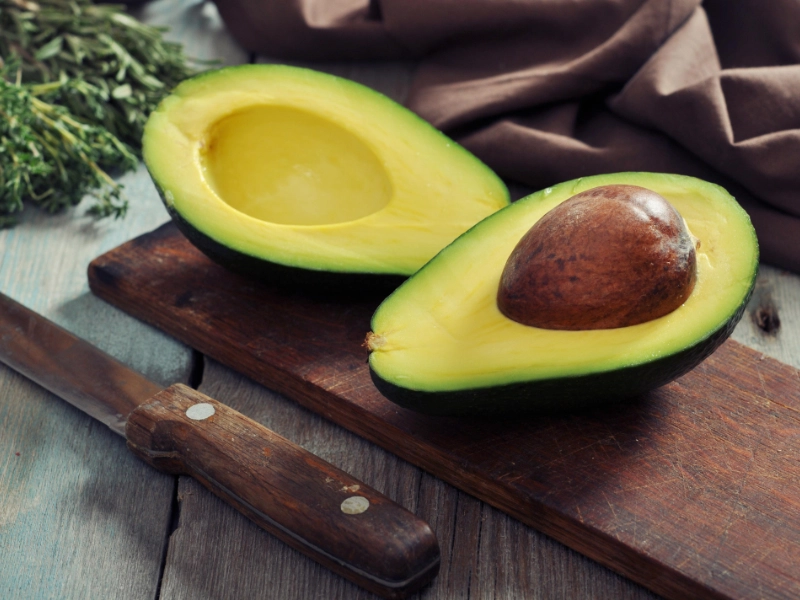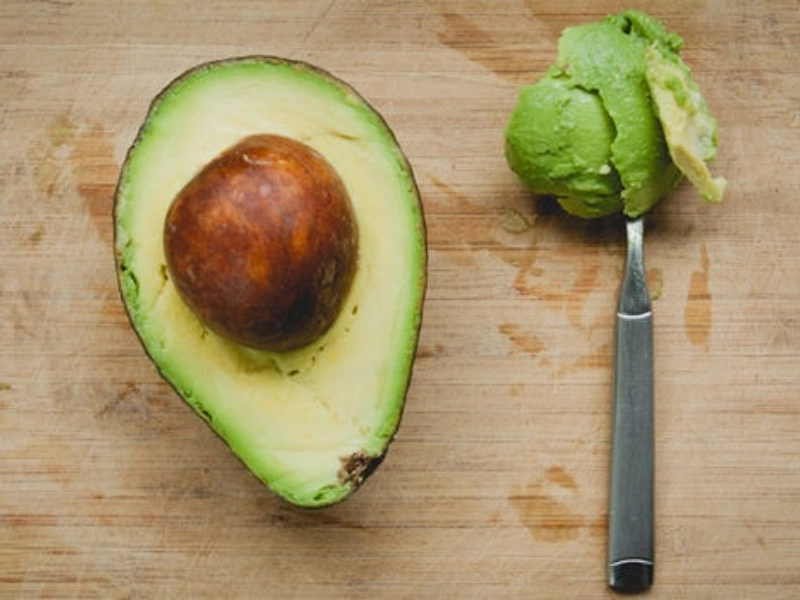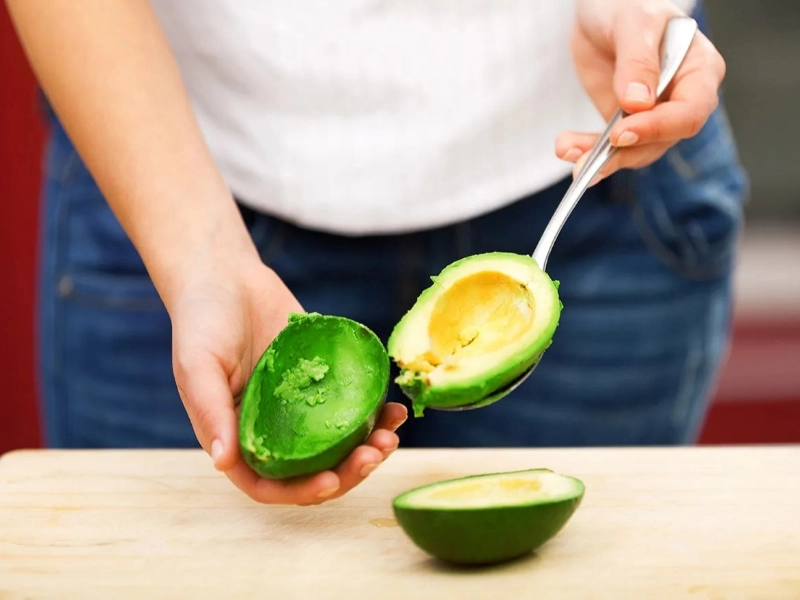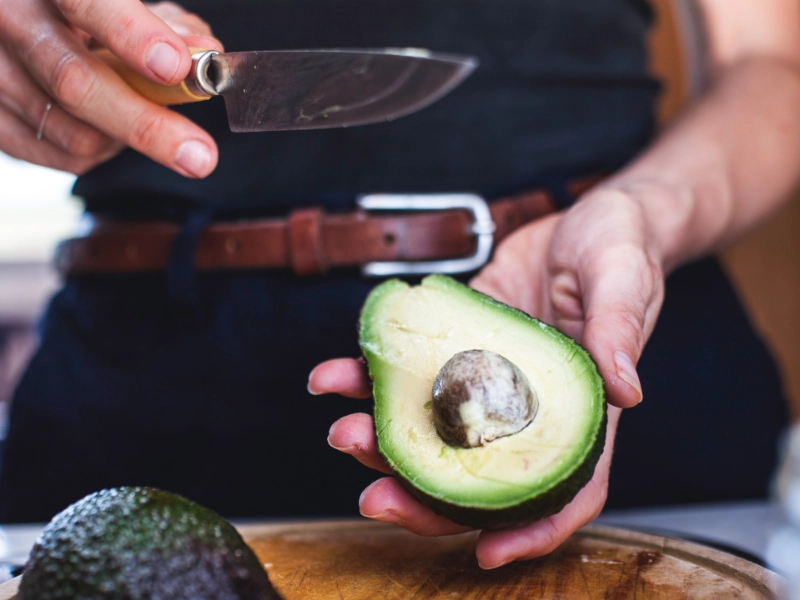Not only are avocados a great source of good fats, they're also a great source of potassium, vitamin C, vitamin E, and vitamin K. Avocados help your body better absorb fat-soluble vitamins, including A, D, and E, and they're packed with fiber. But is one avocado's worth of fat each day enough? According to functional medicine nutritionist Ariana Cucuzza, this depends entirely on your goals.

 Avocados are rich in monounsaturated fats, potassium, magnesium, folate, and vitamins B6, C, E, and K. Eating avocados often can help reduce your chances of getting heart disease. They are also high in ephedrine, a type of carotenoid that can penetrate the blood-brain barrier and boost cognitive function. A 2020 study in the journal Frontiers in Nutrition found that people who ate half an avocado every day for six months showed better results in terms of memory, attention, and processing speed. A tablespoon of avocado can boost the flavor and nutrition of savory dishes such as eggs, soups, and dressings. It can also be used in desserts such as paper cupcakes and brownies in place of butter. Avocados may take longer to ripen, but they are ready to eat once their skin turns a deep purple or black and they give way when pressed gently. They can be stored in the refrigerator for a few days once ripe.
Avocados are rich in monounsaturated fats, potassium, magnesium, folate, and vitamins B6, C, E, and K. Eating avocados often can help reduce your chances of getting heart disease. They are also high in ephedrine, a type of carotenoid that can penetrate the blood-brain barrier and boost cognitive function. A 2020 study in the journal Frontiers in Nutrition found that people who ate half an avocado every day for six months showed better results in terms of memory, attention, and processing speed. A tablespoon of avocado can boost the flavor and nutrition of savory dishes such as eggs, soups, and dressings. It can also be used in desserts such as paper cupcakes and brownies in place of butter. Avocados may take longer to ripen, but they are ready to eat once their skin turns a deep purple or black and they give way when pressed gently. They can be stored in the refrigerator for a few days once ripe.
 Avocados are an important source of anti-aging nutrients that can make your skin look younger and healthier. Alpha-linolenic acid is an omega-3 fatty acid extracted from plants that can reduce inflammation. It also helps prevent sagging skin and wrinkles. Avocados also contain 6% of the daily required amount of niacin, which is known to promote the synthesis of ceramides. These lipids are an important component of the epidermis, which is the outermost layer of the skin. They also help protect your skin from the sun by shielding it from UV rays that can accelerate skin aging. Vitamin K is important for bone health and the prevention of osteoporosis and is one of the other important elements in avocados. It can reduce blood clotting in the bones and improve calcium absorption in the intestines.
Avocados are an important source of anti-aging nutrients that can make your skin look younger and healthier. Alpha-linolenic acid is an omega-3 fatty acid extracted from plants that can reduce inflammation. It also helps prevent sagging skin and wrinkles. Avocados also contain 6% of the daily required amount of niacin, which is known to promote the synthesis of ceramides. These lipids are an important component of the epidermis, which is the outermost layer of the skin. They also help protect your skin from the sun by shielding it from UV rays that can accelerate skin aging. Vitamin K is important for bone health and the prevention of osteoporosis and is one of the other important elements in avocados. It can reduce blood clotting in the bones and improve calcium absorption in the intestines.
 Avocados are a nutrient-rich fruit, offering a wide variety of nutrients, including fiber, vitamins, minerals, antioxidants, and healthy fats. They are rich in folate, vitamin C, vitamin E, magnesium, and other nutrients. Potassium, a "nutrient of concern" for many Americans, is also present in large amounts. These nutrients can lower low-density lipoprotein or "bad" cholesterol, which is important for heart health. Avocados are also a great source of plant sterols, such as beta-glucosterol, which help maintain low cholesterol levels.Finally, avocados are found in large amounts of leucine, a component of protein and amino acids that are necessary to support muscle development. Avocados are also a great source of calcium, which is necessary for strong bones. As mentioned above, they are also high in fiber, which helps balance the diet and prevent constipation. Avocado fiber is recognized for its beneficial elemental properties, which can promote the development of beneficial bacteria in the digestive system.
Avocados are a nutrient-rich fruit, offering a wide variety of nutrients, including fiber, vitamins, minerals, antioxidants, and healthy fats. They are rich in folate, vitamin C, vitamin E, magnesium, and other nutrients. Potassium, a "nutrient of concern" for many Americans, is also present in large amounts. These nutrients can lower low-density lipoprotein or "bad" cholesterol, which is important for heart health. Avocados are also a great source of plant sterols, such as beta-glucosterol, which help maintain low cholesterol levels.Finally, avocados are found in large amounts of leucine, a component of protein and amino acids that are necessary to support muscle development. Avocados are also a great source of calcium, which is necessary for strong bones. As mentioned above, they are also high in fiber, which helps balance the diet and prevent constipation. Avocado fiber is recognized for its beneficial elemental properties, which can promote the development of beneficial bacteria in the digestive system.